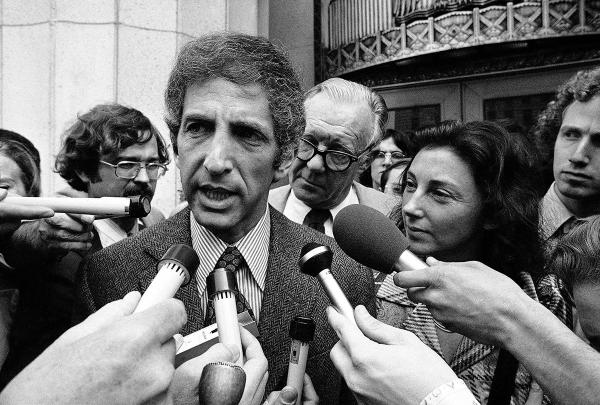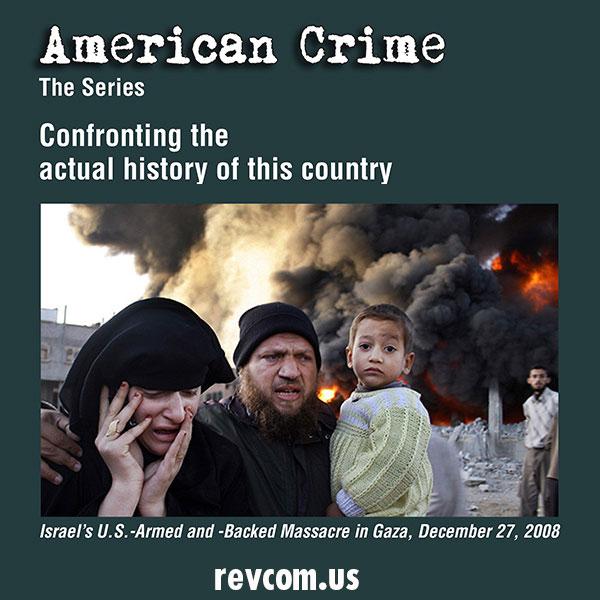
Daniel Ellsberg (1931–2023)
On June 16, the courageous whistleblower, antiwar activist, and author Daniel Ellsberg died at the age of 92. In sharp contrast to what passes as “courage” in this society, Daniel Ellsberg recognized and acted on the understanding that the people of the world, and the future of humanity, matter more than one's own comfort.
Daniel Ellsberg gained renown for releasing the Pentagon Papers to the New York Times and other newspapers in 1971—when the U.S.'s genocidal war in Vietnam was raging and the antiwar movement was shaking U.S. society. Ellsberg worked as a high-level advisor in the Pentagon in the mid-1960s. But by the late 1960s, he turned radically against the war. He felt a profound moral responsibility to do whatever he could to stop it, no matter the personal cost.
The Pentagon Papers brought to public attention the sordid history of this war and the lies Democratic and Republican administrations had told to justify it. Their release further fueled the antiwar movement and deep questioning about the legitimacy of the system. Ellsberg was arrested and faced a total of 115 years in prison. Yet he never backed down or regretted his action (the charges were eventually dismissed).

Daniel Ellsberg, co-defendant in the Pentagon Papers case, talks to media outside the Federal Building in Los Angeles, April 28, 1973. Photo: AP / Wally Fong
A Lifetime of Supporting and Calling for MORE Whistleblowers
In the 50 years since the Pentagon Papers, Ellsberg continued to call on government officials to act with courage and reveal government secrets and lies to help stop wars and other injustices. He lamented that it took so long for others to step forward.
During the Obama years, he supported whistleblowers like Julian Assange, founder of WikiLeaks; Chelsea Manning, who exposed U.S. war crimes; and Edward Snowden, who leaked documents exposing the massive U.S. surveillance programs. (The Obama administration went after more whistleblowers than any other president.)
A Lifetime Opposing Nuclear Weapons, U.S. Wars, and Empire
Daniel Ellsberg also focused on the grave danger of nuclear weapons and war and America’s ongoing, unjust wars. Even as he faced terminal cancer, Ellsberg spoke forcefully against the U.S. proxy war in Ukraine and its catastrophic dangers: “The current risk of nuclear war, over Ukraine, is as great as the world has ever seen.” He warned of the danger of “nuclear winter”:
[m]ore than a hundred million tons of smoke and soot from firestorms in cities set ablaze by either side, striking either first or second, would be lofted into the stratosphere where it would not rain out and would envelope the globe within days. That pall would block up to 70% of sunlight for years, destroying all harvests worldwide and causing death by starvation for most of the humans and other vertebrates on earth…. It’s urgent to get this war ended.… We need a ceasefire and negotiations.
Exposing Empire and Its Media
He also exposed the media for concealing the inconvenient truth that Americans
are citizens of an empire ... in the core of an empire that feels itself as having the right to determine who governs other countries, and if we don’t approve of them because of their effect on corporate interests, or their refusal to give us bases, or through pipelines of a kind that we need, we feel absolutely right and capable of removing them, of regime change.
Virtually every president tells us, or reassures us, that we are a very peace-loving people, very slow to go to war, very reluctant, perhaps too slow in some cases, but very determined once we’re in, but it takes a lot to get us to accept the idea of going to war, that that’s not our normal state. That of course does go against the fact that we’ve been at war almost continuously.… How much of a role does the media actually play in this, in deceiving the public, and how difficult is it to deceive the public? I would say, as a former insider, one becomes aware: It’s not difficult to deceive them. First of all, you’re often telling them what they would like to believe—that we’re better than other people, we are superior in our morality and our perceptions of the world.1
****
Daniel Ellsberg will be missed! In this rare time when a real revolution has become more possible, whistleblowers—new Dan Ellsbergs—can have an outsized impact exposing the crimes, lies, and dirty secrets of this capitalist-imperialist system. Such actions, in combination with other rapidly unfolding developments, and the society-wide influence and organized strength of the forces for revolution, can have enormous reverberations—as Ellsberg’s did—in calling into question the legitimacy of this system and all its institutions.
In this time of accelerating preparations for revolution—when the deepening divisions in society are sharpening up even within the ruling institutions—the actions of whistleblowers and the “peeling away” of high-level servants of the system can help shift the moral, political, and ideological ground in favor of revolution, and potentially contribute to actually winning. It is something to seriously think about as we celebrate the life and example of Daniel Ellsberg.
